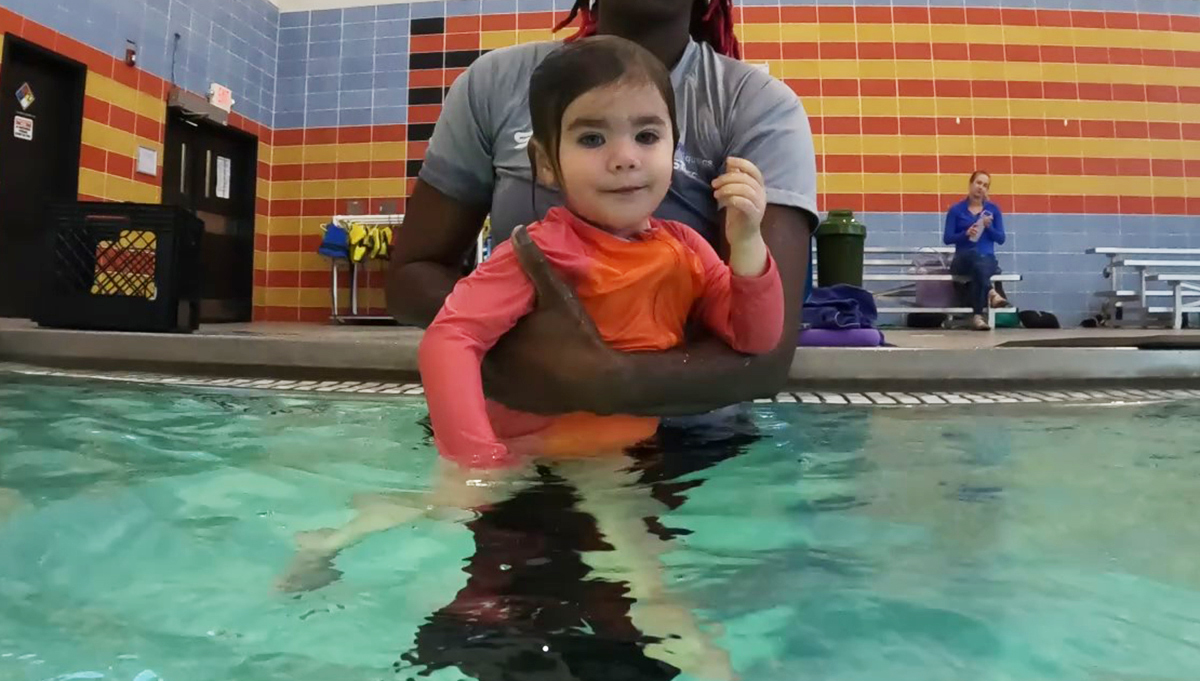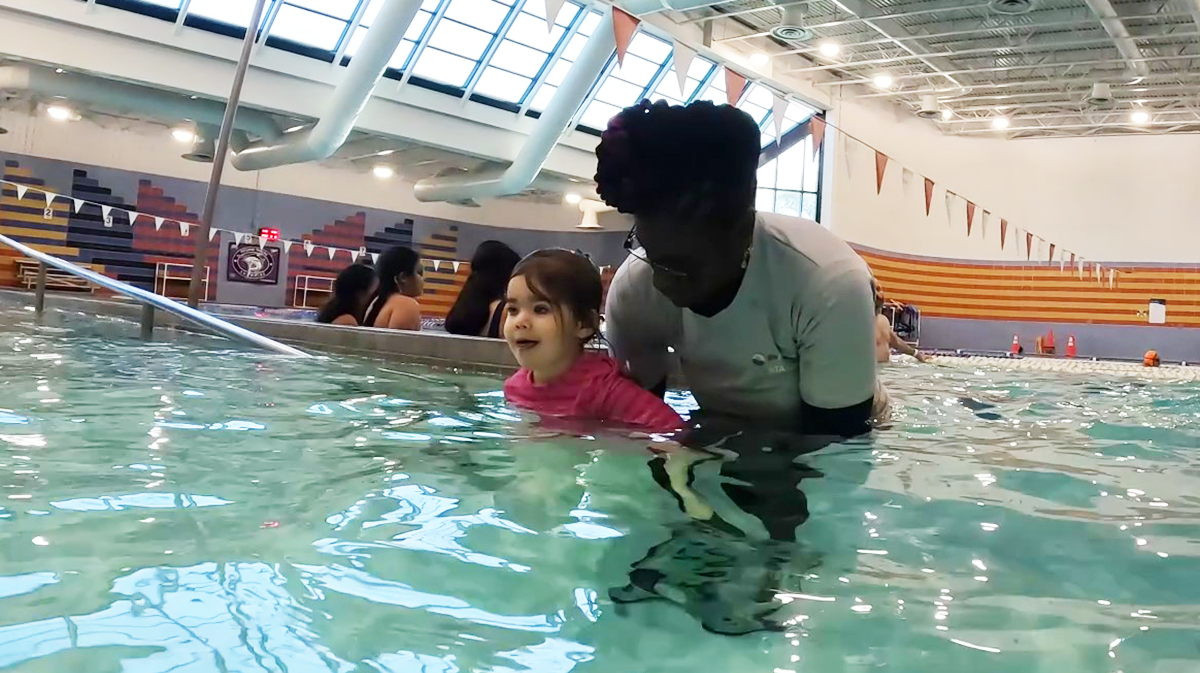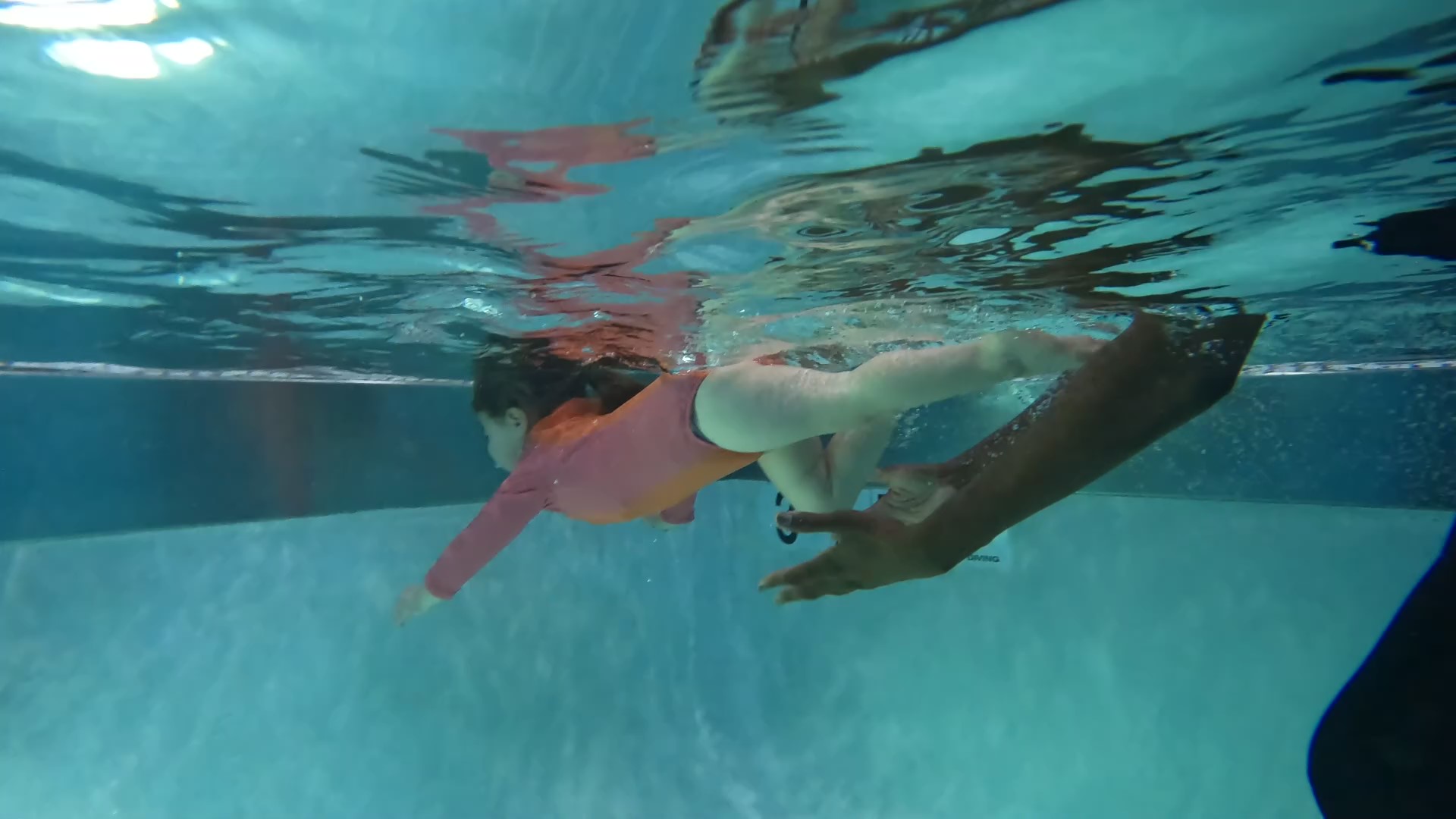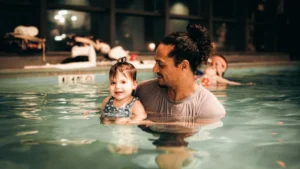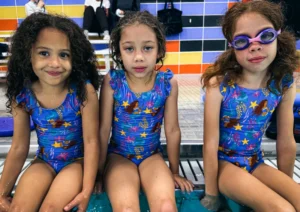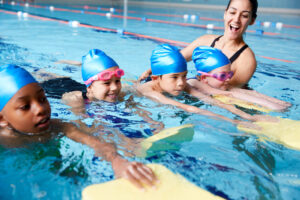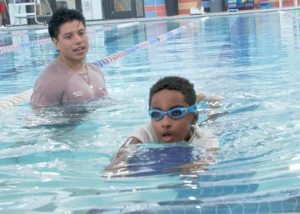Survival Swim Classes Provide Sylvia with Lifesaving Skills
When two-year-old Sylvia joined WeAquatics for her Infant Swim Resource (ISR) classes, the goal was to learn essential water safety skills.
Sylvia came to WeAquatics at the right time— she was ready to grasp these fundamental skills because, after completing 16 classes, she emerged with the ability to perform aquatic survival techniques that could save her life while offering her a solid foundation for learning to swim.
What is ISR?
ISR, which stands for Infant Swimming Resource(™), is a survival swim program designed for children ages six months to four years old.
The primary goal is to teach little ones to roll on their backs and float if they unexpectedly enter the water.
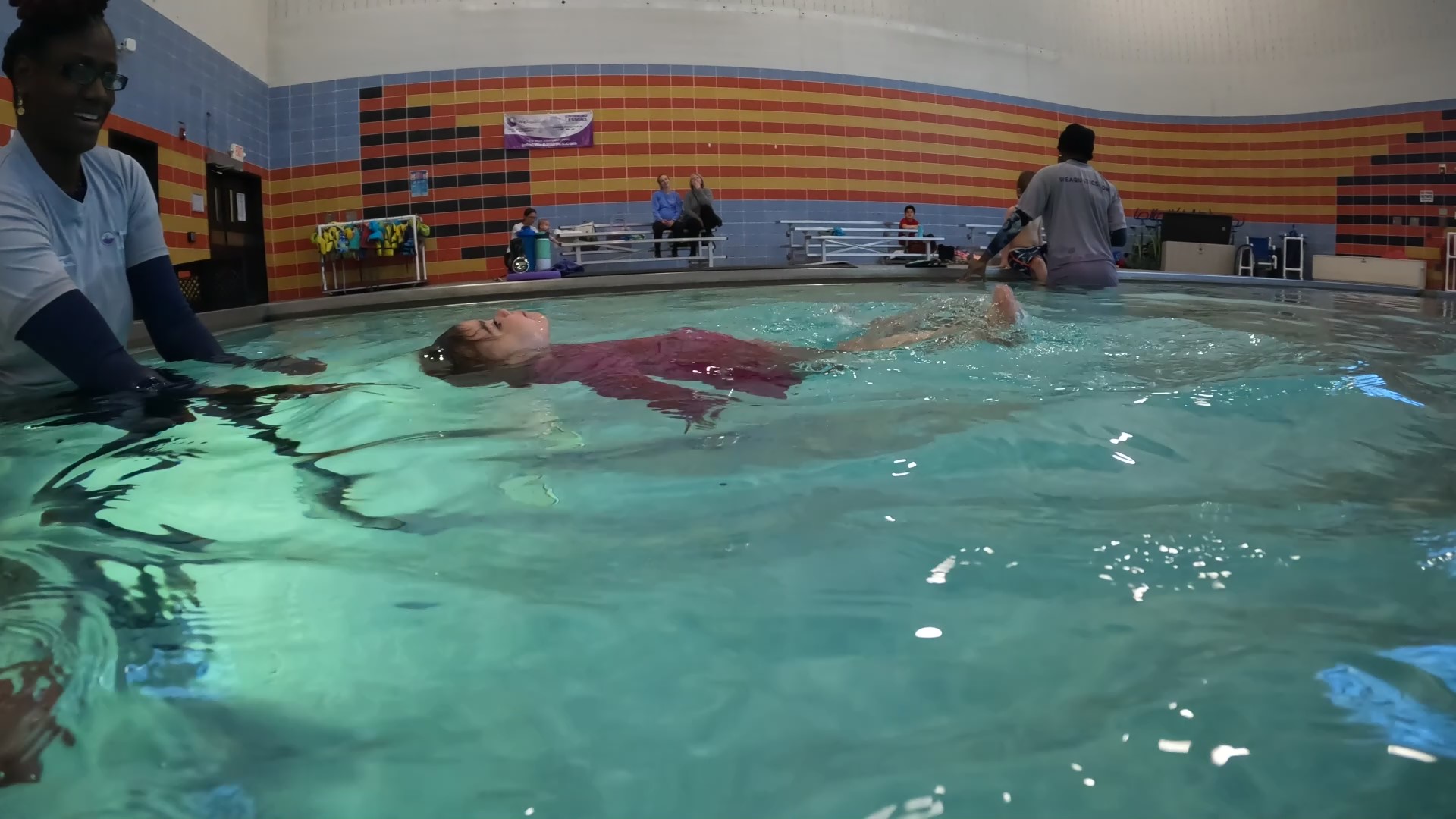
ISR-certified instructors use repetitive training to instill muscle memory, so these life-saving skills become instinctive for little ones in an emergency.
ISR classes at WeAquatics run ten minutes per day, five days a week, for 5-6 weeks. This frequent practice cements new capabilities while keeping lessons short to prevent fatigue.
Once ISR instructors assess each student’s abilities, the classes become child-led. This means students are allowed to learn at their own pace. There’s no rush, and the time to mastery is solely dependent on the student.
ISR’s key skills:
- Swim
- Rolling back to float
- Maintaining the float
- Flipping over to tummy
- Swim after flipping over
- Swim to safety
As Master Instructor Bradford explains, each skill can be broken down infinitely smaller. Instructors isolate these abilities to improve students’ overall swim-float-swim sequence systematically.
On the last day of ISR classes, parents or caregivers are invited to join the instructor and their child in the water so that the instructor can demonstrate what their child has learned and the rules for each skill. This way, parents can reinforce and help maintain the learned skills when they swim together.
What makes ISR different from other swim classes?
Infant Swimming Resource™ classes at WeAquatics is a skill-based program.
For children from other local swim programs, there is a noticeable difference in the skills gained and maintained.
While many young kids emerge from these programs with a lot of confidence around water, they lack the survival skillset necessary to assist them should they accidentally fall in the water.
WeAquatics breaks down each step to ensure students only progress when they have mastered each skill. Consistent daily practice helps students gain the muscle memory required to help them in an emergency.
Sylvia’s Case
Two-year-old Sylvia’s swimming experience before coming to WeAquatics for ISR lessons included Baby & Me classes at the rec center and playing at the swimming pool and in bodies of water with her family.
Although she was confident around water, her parents were concerned because she couldn’t navigate her way out of an emergency. They wanted to encourage her love of water play while also developing the necessary survival skills from certified instructors.
Because Sylvia wouldn’t put her head under the water and could not float on her back, her parents hoped she could float on her own and propel herself to the pool’s edge in case she accidentally fell in the water.
Not many children master the swim-float-swim sequence in 5-6 weeks. Sylvia was able to do this within 16 classes.
Sylvia’s Progression
Over 16 lessons, Sylvia’s instructors, Delicia and Bradford, saw incredible development.
While Sylvia made excellent progress overall, she faced some specific challenges.
Initially, she had difficulty sustaining a still float on her own. Instructors reinforced proper horizontal head positioning for efficient floating. Delicia spent extra time shaping and fine-tuning this fundamental skill through repetitive practice. After extensive floating practice, Sylvia gained the strength to maintain brief solo floats—a significant achievement!
The second hurdle was rolling back to float and breathe after swimming four strokes. This portion of the swim-float-swim sequence often needs to be improved for students. For about a week and a half, her instructors focused on shaping and refining Sylvia’s ability to smoothly transition from swimming to floating.
As Sylvia became more confident, her instructors provided more opportunities to practice the entire sequence independently.
Everyone’s patience and persistence paid off, as Sylvia independently demonstrated the complete swim-float pattern after two weeks. She beamed with pride at mastering skills that would keep her safe.
Sylvia’s instructors were consistent and persistent, ensuring she learned proper technique. Breaking down complex skills into manageable parts provided a path to Sylvia’s success.
Gradually, as Sylvia gained confidence, she was able to maneuver independently.
What’s Next for Sylvia?
For Sylvia and all ISR graduates, it’s recommended that they take refresher or maintenance classes to maintain and build on the skills they learned and practiced in class.
This can vary for each child, but the general rule is that once the student has moved up a size in clothing, their muscles and body have changed significantly enough to require a refresher to recalibrate the student to their new size.
Maintenance lessons are the best option if time permits because they allow the student to receive guided, ongoing practice with the newly mastered skills and the time and space for introducing more advanced skills and strokes. Sure, Sylvia can stop at Swim-Float-Swim, but the maintenance program means we will start incorporating traditional swimming techniques into her weekly lessons to prepare for Learn-To-Swim lessons, where the focus shifts from survival to efficient lap swimming.
Your Partner in Developing Swim Skills
Safety is WeAquatics’ number one goal. Through ISR, your confident and happy water baby will also develop the fundamental skills necessary to give you confidence!
Learning these essential lifesaving skills gives parents peace of mind for their active little ones around water. While adult supervision is always important, early swim lessons reduce the risk of drowning by 88%.
If you’re a parent or caregiver looking to help your child gain crucial water safety abilities early, discover an ISR class at WeAquatics that’s convenient for you.

